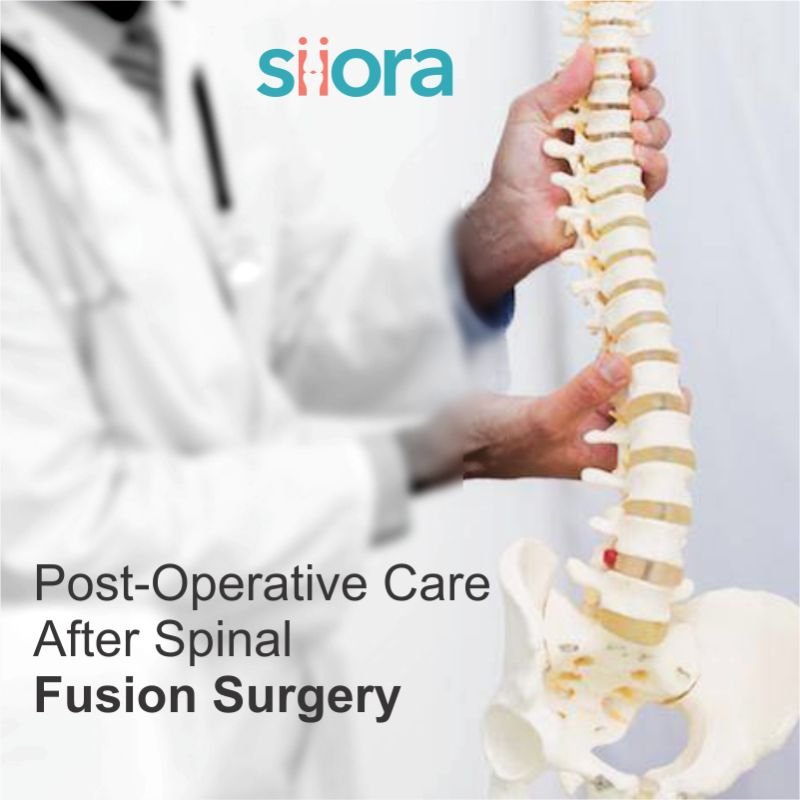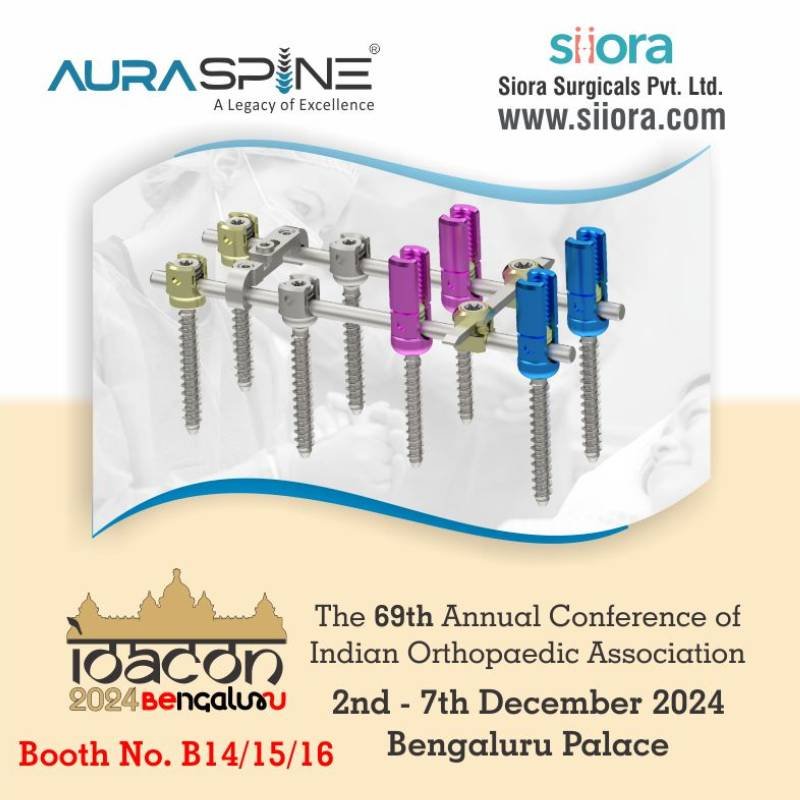Spinal fusion surgery can be a life-altering procedure for those suffering from chronic back pain. By permanently joining vertebrae together, it aims to create stability and alleviate pain caused by conditions like disc herniation, spinal stenosis, or spondylolisthesis. However, a successful outcome hinges not just on the surgery itself, but also on the crucial period of recovery that follows.
This guide equips you with the knowledge to navigate postoperative care after spinal fusion, empowering you to actively participate in your healing journey.
Postoperative Hospital Stay
Your initial days post-surgery will be spent in the hospital under close observation. Pain management will be a priority, with medications tailored to your needs. You’ll likely be fitted with a back brace for support and stability. Physical therapists will guide you through gentle exercises to promote circulation and prevent stiffness. Gradually, you’ll progress to walking with assistance, regaining strength and confidence in basic movements.
The Healing Landscape: Understanding the Stages
The bone healing process after spinal fusion unfolds in distinct phases, each with its specific needs:
Inflammation (0-5 days)
Your body forms a protective blood clot at the surgical site, initiating the healing process. Pain and swelling are common during this time.
Repair (1-4 weeks)
New bone begins to form at the fusion site. It’s crucial to minimize stress on the vertebrae to facilitate this delicate process.
Remodeling (4 weeks onwards)
The newly formed bone strengthens and matures. Physical therapy plays a vital role in regaining strength and flexibility.
Rest, Recuperate, and Rejuvenate: Essential Postoperative Practices
Pain Management
Your doctor will prescribe medications to manage postoperative pain. Follow instructions carefully regarding dosage and frequency. Remember, pain control is vital for effective physical therapy and a faster recovery after spine surgery.
Activity Modification
Bending, twisting, and lifting heavy objects put undue strain on the healing vertebrae. Listen to your body and avoid strenuous activities for the first 6-8 weeks. Your doctor will provide specific weightlifting restrictions and gradually introduce safe exercises.
Embrace Physical Therapy
Physical therapy is your partner in regaining strength, flexibility, and proper posture. A tailored program will focus on core strengthening, improving balance, and teaching safe movement mechanics to prevent future injury.
Sleeping Soundly
Proper sleep promotes healing. Invest in a supportive mattress and pillows that maintain good spinal alignment. Do not sleep on your stomach as it can cause back strain.
Dietary Support
Nourish your body with a balanced diet rich in protein, calcium, and vitamin C. These nutrients are essential for bone health and tissue repair. Aim for plenty of fruits, vegetables, whole grains, and lean protein sources.
Hydration is Key
Dehydration can hinder healing. Keep drinking water at regular intervals to maintain proper hydration.
Physical Therapy: Your Path to Strength
Physical therapy has an important role in recovery after spinal surgery. A qualified therapist will design a customized program to:
Improve Flexibility and Range of Motion
Gentle stretches and exercises will help restore flexibility in your spine and surrounding muscles, reducing stiffness and improving your ability to perform daily activities.
Strengthen Core Muscles
Strong core muscles support your spine and improve posture, reducing strain on the fused vertebrae. Exercises will target core muscle groups to enhance overall stability.
Balance and Coordination
Regaining balance and coordination is crucial for preventing falls, which can jeopardize the fusion. Your therapist will guide you through exercises that progressively challenge your balance system.
Education
Physical therapists will educate you on proper posture, body mechanics, and lifting techniques to prevent future injuries and protect the fused spine.
Taking Care of Your Incision
- Keep the incision site clean and dry. Follow your doctor’s instructions on showering and dressing changes.
- Infection may give signs like redness, swelling, or pus drainage. Identify these signs early and immediately contact your doctor.
Mental and Emotional Wellbeing
Spinal fusion surgery can be a physically and emotionally challenging experience. These tips might help you here:
Acknowledge your feelings
It’s normal to feel anxious, frustrated, or discouraged during recovery. Talk to loved ones, a therapist, or join a support group to connect with others who understand your journey.
Set realistic expectations
Recovery is a marathon, not a sprint. Focus on small daily victories and celebrate your progress.
Practice relaxation techniques
Techniques like deep breathing, meditation, or mindfulness can help manage stress and improve sleep quality.
Red Flags to Watch Out For
While some pain and discomfort are expected, be aware of these warning signs that might indicate complications:
- Increasing pain or fever
- Numbness or weakness in the legs
- Difficulty controlling bladder or bowel movements
- Drainage or redness at the incision site
- Difficulty breathing
If any of these symptoms appear, seek medical advice.
Returning to Work and Daily Activities
Certain factors decide the recovery timeline including the type of surgery, your overall health, and post-surgical care. Generally, it takes 4-6 weeks to return to a sedentary job and 12 weeks or more for physically demanding professions. Clear your return to work with your doctor and build your activity level gradually as instructed by your physical therapist.
Living Life to the Fullest After Spinal Fusion
Spinal fusion surgery can pave the way for a pain-free and active future. By diligently following your doctor’s instructions, staying committed to physical therapy, and prioritizing your mental well-being, you can conquer recovery and reclaim your quality of life. Remember, communication is key. Don’t hesitate to ask questions or voice any concerns to your healthcare team throughout your recovery journey.
About Siora Surgicals Pvt. Ltd.
Siora Surgicals Pvt. Ltd. is a renowned orthopedic manufacturer in India that has a distributor network in over 50 countries. Having served the global orthopedic fraternity for 30+ years, Siora holds the expertise to manufacture hundreds of different types of trauma implants under 20 different categories. All the processing including manufacturing and testing is done in Siora’s in-house production facility established in the RAI District, Soneapt, Haryana. Moreover, the company is also looking to spread its wings across different countries. For that, it is searching for Orthopedic Distributors in USA. The company is also a trustworthy OEM service provider worldwide.







